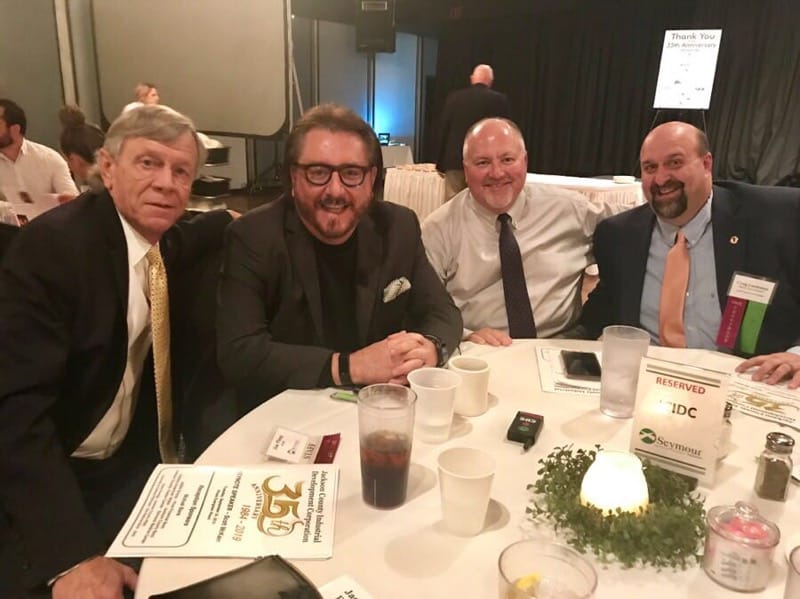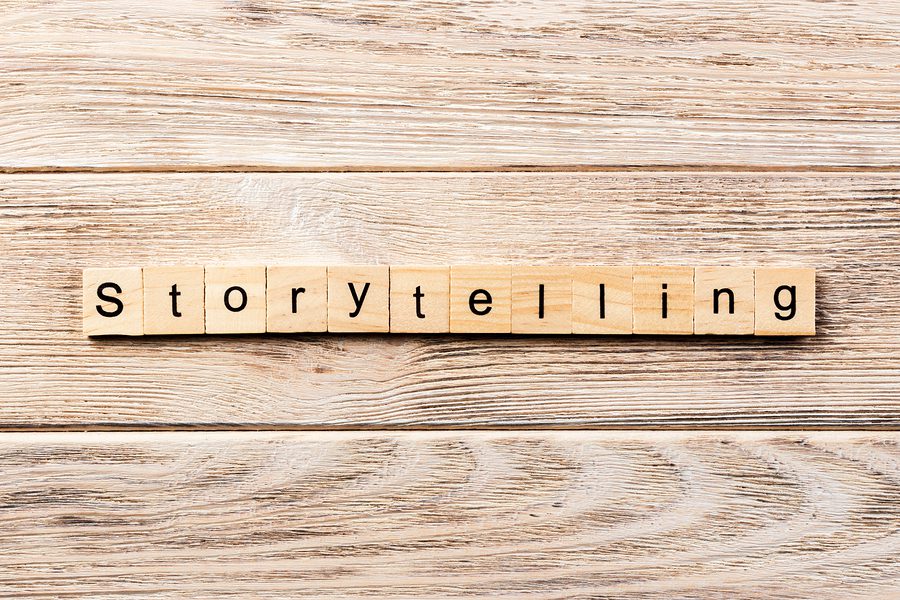
Nov 2, 2019 | Business Distinction, Current Event, Personal Distinction
Video reminder from Cabo to take care of yourself and take time to recharge for work ahead. It’s required for creativity needed to create distinction for the future!
Don’t be afraid to take a little time to unplug and I’ll see you here next week.

Oct 12, 2019 | Business Distinction, Personal Distinction
It surprises no one when I tell them that the Eagles are my
all-time favorite band. But, some are surprised when I list a little-known
track from the “One of These Nights” album as one of my favorite songs of
theirs.
“After the Thrill is Gone” sings about a relationship that
has eroded. The haunting lyrics say, in part:
“Same dances in the same old shoes;
You get too careful with the steps you choose;
You don’t care about winning…but, you don’t want to lose
After the Thrill is Gone.”
(Music & lyrics by Glenn Frey and Don Henley; ©1975)
Don Henley once commented, “As exciting as the whole Eagles
thing was at times, some of the luster was beginning to wear off. We were
combining our personal and professional lives in song.”
Yet, don’t we see the same thing
in our respective businesses, too? Haven’t we encountered employees exhibiting
this outlook? And, tragically, could this be the path we find ourselves on now?
Something works — so, we keep repeating it to the point that
it’s boring, yet we simultaneously become overly cautious because we don’t want
to make a mistake that might shift an advantage to our competition.
The words of Don Henley and Glenn Frey describe for me in
lyrical poetry what Dr. Clayton Christenson was illuminating in “The Innovator’s
Dilemna.” We have something distinctive in our business, career, or life — so,
we milk it to extinction. Sure, we know that we should continue to change,
grow, and innovate — in fact, that’s what made the original success possible.
Yet, we keep dancing the same dance in the same old shoes, carefully choosing
our steps until we stop trying to win…we just seek to avoid defeat.
When I was researching iconic performance for my
latest book, the first factor that became obvious was that “playing offense” is
the initial step for sustained success.
How many times do organizations, departments, and
individuals make their plans based upon what their competition is currently
doing? You know the answer: much too frequently.
As you may know, I have many, many friends in the music industry.
While audiences love when they play their hits, if you’re realistic you can
easily imagine that the members of the Oak Ridge Boys can’t get overwhelmingly
excited about singing “Elvira” one more time. Diamond Rio has performed “Meet
in the Middle” thousands of times — and are probably doing so again somewhere
tonight for an enthusiastic audience.
However, the way the Oaks and Diamond Rio — and YOU — keep
it exciting is to continue to innovate. You’ll hear new material and fresh
takes on older hits when you see them. By keeping themselves engaged and
innovating, they keep the audience involved and interested. They make sure the
thrill doesn’t depart, so they don’t have to be concerned with happens “after
the thrill is gone.”
You and I should take a similar approach…this week!
What fresh take could you
employ on an existing approach — and how can you create something new — to
maintain and enhance your excitement about what you and your organization
delivers for customers?

Sep 28, 2019 | Business Distinction, Personal Distinction
This past week, I had the wonderful privilege of returning
to my home county in Indiana to speak for our local Economic Development
Commission’s annual banquet. This was the 35th anniversary of the
founding of the effort to attract new business to our area of southern Indiana.
I was the speaker for the event ten years ago, and Executive Director Jim Plump
was kind enough to ask me to return.
“Wow,” I either heard
or said repeatedly during the evening, “has it really been a decade since the
last time I was at this event? Time files!” It wasn’t the title of my speech –
but, it certainly was the theme of the night.
In attendance were high school colleagues of mine, former
work associates from my days in broadcasting, and many more. We all marveled at
how quickly the years have flown by.
After the event, I went to visit family in the northern part
of Indiana. As we watched young kids who seemed as newborns only a blink of an
eye ago, we commented on the swift passage of time.
However, I remember as a freshman in high school that it
seemed as though commencement day was eons away. As a new enrollee at college,
I could not wait to graduate and get into the “real world.” When older adults
told me at that juncture how rapidly time would pass, I thought, “Sure! Bring
it on!”
- Now, however, I understand exactly what
they meant.
I’m also reminded of someone I talked about during my speech back in Indiana last week. When I had the opportunity to meet and have dinner with him when I was in my early 20’s, he related the story of his life to me.
He was born in another small town just twenty miles south of
my own. When he got his first Social Security check, he decided he was going to
start his own business so he wouldn’t be dependent upon the government for the
rest of his life. Taking that initial retirement payment, he launched a
restaurant…
You don’t think of him has hailing from Henryville, Indiana
– but, he did. Harland Sanders named his business Kentucky Fried Chicken, now
better known as just KFC.
- Colonel Sanders decided that even though
the years up to his 65th had flown by, he could still do something
with the ones he had left.
The point is that even though the years may be
flying by, we can – regardless of our respective ages – create extraordinary
opportunities for ourselves, if we are willing to create distinction in the
time that is our present.

Sep 14, 2019 | Personal Distinction
This weekend is one of two during the NFL season that is
always a combination of difficult and enjoyable for me. My Indianapolis Colts are
playing the Tennessee Titans.
While I am fortunate to have many friends and acquaintances
spread into every NFL city, there’s an unusual concentration of my closest pals
in Music City. This, of course, means that the two times a year these
divisional rivals play, I’m conflicted between rooting for my team and hoping
to celebrate another Colts win – and not wanting to hear the inordinate amount
of grief I will receive from my buddies in Nashville if their Titans are
victorious.
- Isn’t it amazing how many people identify with their local
teams? My wife gives me a rough time for how much my emotional state ebbs and
flows with the success or failure of the teams I love most!
Yet, there are other products and services where we have
emotional investment, as well. If I see someone driving down the road in a car that
matches mine, I don’t say, “Look – there goes someone who made an identical
choice in transportation as I!” Instead, I exclaim, “Hey – that dude is driving
MY car!”
If you ask me about my teams or my car, I respond with
stories about them. I’ll tell you about how they thrill me…disappoint me…excite
me…discourage me. In other words, I won’t give you statistics and percentages
about their efforts – I will relate stories to convey my emotional attachment.
- It’s a bit baffling to consider why more professionals — and
the organizations they work for — haven’t integrated this into their approach
as they deliver a customer experience.
The dictionary says an “experience” is “an event or
occurrence that leaves an impression on someone.” I’d
suggest that “impressions” are primarily made by emotions and feelings – which
are typically conveyed by stories, not data.
For a decade, I evaluated the effectiveness of the stories
told by major movies in my reviews that were seen weekly on television by a
million people across the country. I also had the chance to interview and spend
time with the artists who were writing, directing, and performing those stories
– from Quentin Tarantino to James Cameron, from Barry Levinson to the Farrelly
Brothers, from Tom Hanks to Meryl Streep.
I learned many aspects of storytelling from them – and the
primary aspect was this: for any story to connect with the intended audience,
you must care about what happens to the characters.
- Therefore, compelling stories are always about people.
“Wait!” you may be thinking, “What about films ranging from
‘The Love Bug’ about a VW to ‘Transformers’ – those aren’t people!” Yet, what
is engaging are the people who are dealing with Herbie or Optimus Prime
– and that both the car and the Transformer are endowed with human
characteristics, making them more relatable.
How are you telling YOUR story? Are you focusing on the
features and benefits of your products – or telling a story about how someone
is benefiting from using it? Are you describing data about your service – or
relating a narrative about how someone’s life is improved because of it?
Your ability to connect
with customers and employees will only be as distinctive as the stories that you
tell them.
(Go Colts!)

Sep 7, 2019 | Business Distinction, Personal Distinction
It would be impossible not to be impacted by recent scenes
of the destruction caused by the hurricane that battered the Bahamas and by the
tragedies of mass shootings at several locations here in the United States.
Yet, it’s also possible to become a bit – for lack of a
better word – calloused by all this coverage, as well. If it’s sunny where you
live – as it was for us in Las Vegas – a weather disaster plays out somewhat
like a scene in an action movie. While our hearts hurt for those who have been
victims of madmen, we can too easily assume a similar fate won’t befall us.
I
know – I used to be exactly that way, myself. Tragedy was something that
happened to someone else, someplace else. Until it wasn’t.
In the past dozen years, I’ve dealt (and am dealing) with
everything from the death of a spouse to the betrayal of trust from a friend
and business associate; from a family member addicted to heroin and the cycle
of rehab, theft, and the associated drama to financial challenges from the
myriad of health care issues in our family.
And, I would wager that your plate has been pretty full,
as well.
I bring all of this up for two important points:
- First: it can happen to you, it’s not
always someone else.
True in life – and just as factual in business. I’ve heard a
CEO complain about horrific customer experiences as he did business – even as he
is leading an organization that does not deliver for their own clients. This
“it’s them, not me” attitude is pervasive and destructive.
We each must look in the mirror, as the cliché goes, and
realize that what we may be criticizing in others could be what is wrong in our
place, as well.
That’s not an easy task – however, it is a foundation of
growth.
And, when we realize that it can happen to us, it’s
also the first step towards the preparation that can negate or prevent lasting
damage. If you realize, for example, that colon cancer could happen to you –
and not just others – you get a colonoscopy as a preventative, preparatory
measure. If you realize that a competitor might attract your current customers,
you try harder to innovate and less to wring every cent out of your current
line of products.
Jeff Bezos said that at some point in the future, even Amazon
will be disrupted…and his job is to prevent that from happening for as long as
possible. Wise people – and organizations – realize that challenges can happen
anywhere, anytime…so, they prepare.
- Second: how you respond to your challenges reveals
your character.
We’ve all heard the old saw, “It’s not what happens to you;
it’s how you respond to what happens to you.” This has become an oft-repeated
cliché (is there any other kind?) for one simple reason: it is true.
None of us can control what happens to us. All we possess is
the ability to take charge of our response to a given situation. That is
remarkably easy for me to sit here and write – and, as I can tell you from
experience, significantly more difficult to do.
However, what’s the alternative? Days of despair and
despondency? I will pass on that…
Whether we are talking about your business life or your
personal one, understand that challenges can and do happen to people just like
you and me. In fact, they probably will happen at some point in our lives…
When you realize that it can, you can begin to prepare.
And, you can control your response when it happens.
Young Elias failed at many things: school, military service,
entrepreneurship, and more. He was described as painfully shy and insecure.
After a breakdown, he decided, yes, failure had happened to him and that he was
the only one who could control his response. So, he started another company,
trying one more time to be successful.
Elias did pretty well with his next endeavor. Because Elias
was his father’s given name, too, he preferred to go by “Walt.”
Walt Disney.
Perhaps you can follow a similar path to distinction…

Aug 31, 2019 | Business Distinction, Personal Distinction
We are coming from the right place: we want to improve our
lives and careers. We want to be more successful and attain our potential.
However, with that sincere and honorable aspiration, we often are blinded to a
weakness in our efforts. Some of us are so committed to being successful, we
seek an easy way to get to our destination.
My great friend, Mark Sanborn,
forwarded me a terrific post by Brad Stulberg titled, “The Problem with the
Hack Culture,” that really crystallized my thinking on this. (You can listen to
my podcast on the subject and find a link to the post on ProjectDistinct.com.)
In all candor, I’ve been guilty of this, as well. Whether
you call it a “silver bullet,” problem panacea, waving the magic wand, or
whatever, there is a somewhat natural urge to take the path of least resistance
to getting what we want. However, it’s the combination of our degrees of
gullibility and ethics that will determine the integrity of our path.
When we read about “OPE” — other people’s experience — as a
way to discover precisely how to shorten our learning curve, we should know
that there’s nothing wrong with expanding our thinking through the trials and
tribulations of those who have gone before us.
- However, when we think a “seven-figure
summit” will move us to millionaire status, we have transcended the boundaries
of reason. When we believe that a weekend program will teach us how to make our
business TEN TIMES more successful, it displays a naïveté more than motivation.
So, here’s a reminder we ALL need from time to time: there’s
no “hack” to enduring success.
There’s no mystical secret that “they” don’t want you to
know that will make you rich, successful, gorgeous, and famous in short order.
(You can find about ANYTHING on the Internet. Do you really believe they could
keep such powerful information as a “secret”?)
When I’m asked how I built a successful career as a
professional speaker, few like my answer: I gave ONE THOUSAND free speeches
before I was paid for one. From high school assemblies to small “pitch-in”
dinners with farmers, from noontime Rotary Clubs to nighttime events for blue
collar factory workers — you name it, I was the speaker for it…at least one
thousand times.
I’m not saying that YOU have to do
that. But, I’m sure glad that I did. It’s really hard to find someone extremely
successful who did not pay her dues.
Picture this: You’re sadly discovered to have a heart
ailment at age 30. As they wheel you in to surgery, you accidentally learn that
your surgeon “hacked” his way through med school. He didn’t really fulfill his
residency requirements — he went to a “Seven-Figure Surgery” weekend
conference. Right before they administer the IV of anesthesia, he tells you he
only needs to replace one artery — but, for only another $5K, he will give you
a hell of a deal and do them ALL! Don’t you just love a good upsell?
(Especially in a time of need of the prospect?) As your consciousness fades,
you see the surgeon high-fiving the head nurse, because they just closed
another deal….
How do you feel about shortcutting your way to success now?
Stop it with the “hustle,” the “close,” the “hack,” the
“bro” approach. Think long term. (And, thinking “kindness” will help a lot,
too.)
Do the work.






